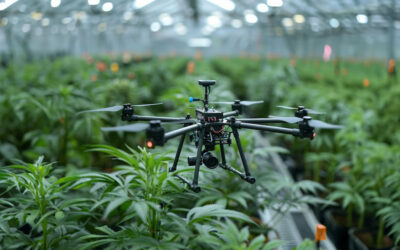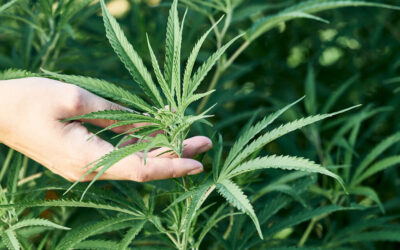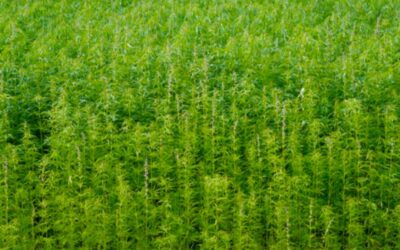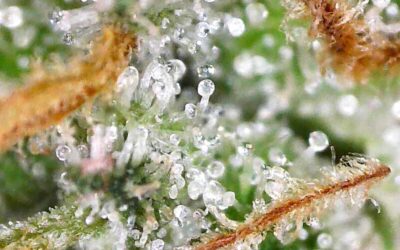
Hemp-Based Adhesives
A Sustainable Alternative
In recent years, the pursuit of sustainable and eco-friendly solutions has intensified across various industries. One such innovation that stands out is the development of hemp-based adhesives. These adhesives, derived from the versatile hemp plant, offer a promising alternative to traditional synthetic adhesives, often laden with harmful chemicals and significant environmental footprints.
The Versatility of Hemp
Hemp, a variety of the Cannabis sativa plant, has been utilised for thousands of years for its fibres, seeds, and oil. Unlike its psychoactive cousin marijuana, hemp contains minimal THC levels and is primarily cultivated for industrial purposes. Its robustness, rapid growth, and minimal need for pesticides make it an environmentally friendly crop.
The use of hemp in adhesives taps into its natural binding properties. The fibres and oils extracted from hemp plants can be processed to create strong, durable adhesives. These adhesives are not only biodegradable but also free from the volatile organic compounds (VOCs) commonly found in synthetic adhesives, making them a healthier option for both manufacturers and consumers.
Environmental Benefits
Reduced Carbon Footprint
The cultivation of hemp itself has several environmental benefits. Hemp plants absorb significant amounts of CO2 from the atmosphere, helping mitigate climate change. Additionally, hemp grows quickly and can be harvested multiple times a year, ensuring a steady supply of raw material without excessive land use.
Biodegradability
Traditional adhesives often contain petrochemical derivatives, which do not decompose easily and contribute to pollution. In contrast, hemp-based adhesives are biodegradable, breaking down naturally over time without leaving harmful residues. This characteristic significantly reduces the environmental impact of products that use these adhesives.
Non-Toxicity
Many conventional adhesives emit VOCs, which can cause health issues such as respiratory problems and skin irritation. Hemp-based adhesives, however, are typically free from these harmful chemicals, ensuring a safer environment for both workers in the manufacturing process and end-users.
Technological Advances
Recent advancements in technology have improved the efficiency and performance of hemp-based adhesives. Researchers have developed methods to extract and process hemp fibres and oils to enhance their adhesive properties. These methods include:
Chemical Modification
Altering the chemical structure of hemp fibres to improve their binding capabilities.
Nanotechnology
Incorporating nanomaterials to increase the strength and durability of hemp-based adhesives.
Bio-Based Cross-Linkers
Using natural cross-linking agents to enhance the adhesive properties without relying on synthetic chemicals.
Applications of Hemp-Based Adhesives
Construction
In the construction industry, hemp-based adhesives can be used for a variety of applications, including the bonding of wood, insulation materials, and flooring. Their strong adhesive properties and environmental benefits make them ideal for green building projects aimed at reducing the carbon footprint of new constructions.
Packaging
The packaging industry is another sector where hemp-based adhesives can make a significant impact. These adhesives can be used in the production of eco-friendly packaging materials, helping companies reduce their reliance on plastic and other non-biodegradable substances.
Automotive
The automotive industry is increasingly exploring sustainable materials to reduce the environmental impact of vehicle manufacturing. Hemp-based adhesives can be used in the production of interior panels, upholstery, and other components, providing a durable and eco-friendly alternative to traditional adhesives.
Textiles and Footwear
Hemp-based adhesives also have potential applications in the textile and footwear industries. They can be used to bond fabrics and materials, creating sustainable and non-toxic products. This is particularly appealing to consumers who are increasingly conscious of the environmental impact of their purchases.
Challenges and Future Prospects
Despite their numerous benefits, hemp-based adhesives are not without challenges. One major hurdle is the cost of production, which can be higher than that of synthetic adhesives. Additionally, there is a need for further research and development to optimise the performance and scalability of these adhesives for various industrial applications.
However, the growing demand for sustainable solutions and the increasing awareness of environmental issues are likely to drive further advancements in this field. As technology continues to evolve, the cost of producing hemp-based adhesives is expected to decrease, making them more accessible to a broader range of industries.
Hemp-based adhesives represent a promising step towards a more sustainable and eco-friendly future. Their environmental benefits, coupled with advancements in technology, position them as a viable alternative to traditional adhesives. By investing in and adopting hemp-based adhesives, industries can significantly reduce their environmental impact while promoting healthier and safer products for consumers. As we move towards a greener future, the potential of hemp-based adhesives is undeniable, offering a blend of sustainability, performance, and innovation.





































































